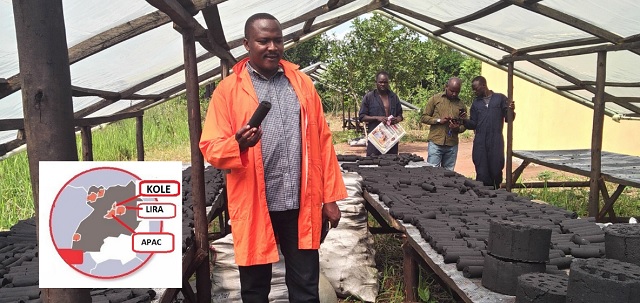
COMMENT | John Okiira | Green Micro Small and Medium Enterprises (MSMEs) are those enterprises that either adopt practices that reduce the amount of waste generated or produce a good or service that helps user firms reduce amount of waste generated and as well conserve the environment.
MSMEs play a vital role in economic growth and act as an engine of growth. In terms of reducing the level of youth unemployment globally, they have created about 80 percent of the jobs, however, governments across the globe have done little to support them to grow and become stable.
Most of them have remained informal because they see no incentive of formalizing.
The MSMEs in Uganda face a number of challenges including access to finance, low uptake of green products such as biomass, briquette biogas, eco-friendly stoves among others, high interest rates, limited capacity and skills to obtain credit.
Existing financiers such as Banks also face challenges of managing risks associated with MSME lending including in green financing.
In relation to public’s acceptance and usage of green products, biomass usage and production has been in existence for decades and has been the major source of power for Ugandans (MEMD, 2012).
According to Uganda Bureau of Statistics (UBOS), biomass is used by over 90 percent of the population in Uganda.
The statistics showed that a vast majority in both middle and low income earning classes have opted to use biomass because it is the cheapest form of energy for most families.
However, whereas wood has always served as a source of fuel for fires and ovens and conventional heating methods, biomass energy advancements are a few steps beyond that.
Currently, other forms of green energy such as biomass briquettes have received low public acceptance due to lack of information regarding they economic benefits in terms of cost to manufacture and conservation of the environment in general.
Briquettes are a form of solid fuel that can be burned for energy.
They are created by compacting loose biomass residues into solid blocks that can replace fossil fuels, charcoal and natural firewood for domestic and institutional cooking and industrial heating processes.
Briquettes have the potential to be a source of renewable energy if they are made from sustainably harvested biomass or waste agricultural residues.
The sector should ride on the recent import-substitution directives by President Yoweri Kaguta Museveni aimed at curbing the spread of COVID 19 pandemic. Alternative fuels should be a priority as the country adopts the Buy Uganda and Build Uganda (BUBU) initiative that is spear headed by Ministry of Trade and Cooperatives.
The green Micro and Medium Enterprises on another hand would take advantage of the space created by the COVID-19 pandemic and increase uptake of green products such as biomass briquettes through awareness creation and also use locally produced materials to produce some of the products such as masks and sanitizers that are on demand currently.
Due to the pressure to raise domestic revenue by Government, tax on LPG gas is estimated to increase hence making it expensive for an average Ugandan to consume.
Alternative sources of energy which are eco-friendly such as biomass briquettes will in this case be demanded for cooking by majority of the Ugandans in urban and peri-urban settings. But how can Government support this intervention?
It can do this through promotion of green financing for businesses in ways such as mainstreaming environmental and sustainable considerations in the financial sector. This, by ensuring that development and commercial banks integrate sustainability considerations in screening investments/business proposal.
Also, by developing green fiscal instruments including public investments, business taxes, subsidies, levies among others to encourage green investments in the economy.
*****
 John Okiira – Is a Research Associate with Advocates Coalition for Development and Environment (ACODE)
John Okiira – Is a Research Associate with Advocates Coalition for Development and Environment (ACODE)
 The Independent Uganda: You get the Truth we Pay the Price
The Independent Uganda: You get the Truth we Pay the Price



